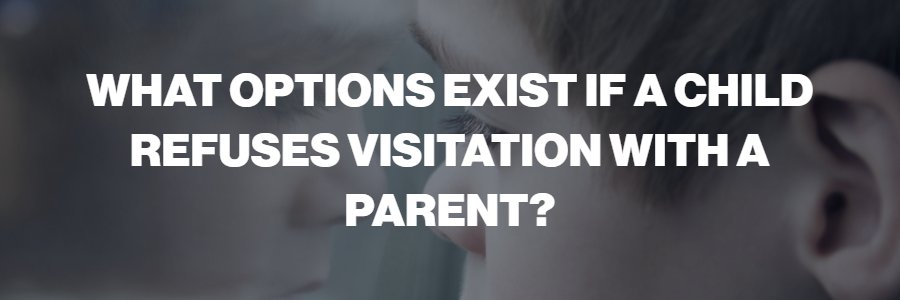Divorce is tough on everyone involved – especially children. If after a divorce, your child does not want to see, visit or stay with your co-parent, this is a tricky situation. You are still legally responsible for fulfilling your custodial obligation to your ex-spouse, even if your child is refusing visitation. Learn what to do in this case from our experienced San Diego child custody lawyers to protect yourself legally.
What Are Reasons for a Child Not Wanting to Spend Time With a Parent?
It is important to learn why your child is refusing visitation. Getting to the underlying issue can help you resolve it and avoid future custody problems. In most cases, a child not wanting to see a parent after a divorce or legal separation is temporary. It may stem from the child’s anger or hurt regarding the divorce in general, or the child may blame one other parent for the divorce. It may also come from something that you do or say, such as if you have made your child feel like he or she needs to pick a side.
Be careful not to be the cause of your child refusing visitation with a parent. Although divorce is an emotional time, you should not let your emotions interfere with the relationship between your child and your ex-spouse. This can put your child in the middle and place an undue amount of pressure on him or her during an already difficult time. It can also result in issues such as your child refusing visitation, which can have legal consequences for you.
Speak to your child openly about how he or she is feeling after your divorce. Do not take it personally if your child does not want to spend time with you. Your child may simply need time to process major changes. If your child is really struggling with the divorce, consider therapy. You should communicate with your ex-spouse about the situation as it evolves so that he or she can help you get to the bottom of what is bothering your child.

What Should You Do if Your Child Doesn’t Want to Go?
In many cases, communication can resolve the issue by addressing its root cause as a family. If it is not possible to change your child’s mind, it is critical to make sure that your child still visits with your ex. Whether or not your child wishes to see your ex-spouse, a court order must be obeyed. Otherwise, you could find yourself being held in contempt of court for failing to obey your custody agreement. Take the following steps if your child is refusing visitation with the other parent:
- Talk to your child. Learn why he or she doesn’t want to visit and work with your ex to do what you can to remedy the situation.
- Get legal help. If the reason that your child doesn’t want to visit has to do with safety issues, such as a co-parent’s new partner or substance abuse, bring this to the attention of your lawyer or the courts immediately.
- Conduct visitations anyway. If the reason does not have to do with your child’s safety, you must do your best to fulfill your custody agreement.
- Put your foot down. If your child is under 18, he or she does not have a say in the custody agreement. Your child must visit with your ex even if he or she does not want to.
- Communicate with your ex. Throughout the ordeal, keep your co-parent in the know about what is going on with your child. Document what is happening and keep proof that you talked to your ex in case the situation goes to court.
Do your best to encourage visitation if your child is refusing to cooperate. In the end, however, remember that you are the parent. You have a responsibility to make your child comply with the court-ordered custody agreement. Although the courts may treat your situation differently if your child is a teenager rather than a young child, it is ultimately your duty to ensure visitation. If you find yourself in this delicate situation and need assistance or legal advice, contact a child visitation lawyer in San Diego at Boyd Law for a consultation.




